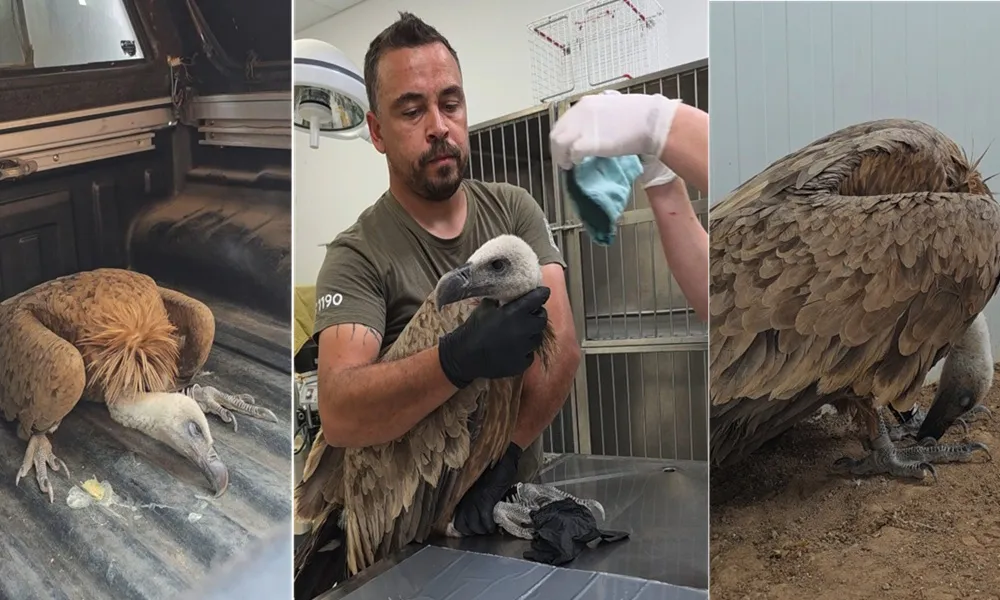One of the Spanish vultures brought to Cyprus as part of a conservation project is recovering at a private wildlife rehabilitation center in the north after being found exhausted and dehydrated.
The bird, which carries a tracking transmitter, had been monitored by BirdLife Cyprus and the Game and Fauna Service. The two organizations noticed that it had remained motionless in the same location for several hours, an unusual behavior for this species. The signal came from occupied Famagusta, first from the roof of a building and later from a nearby wetland. Concerned for the bird’s safety, BirdLife Cyprus contacted a specialized rehabilitation center in the north to request immediate assistance.
According to BirdLife Cyprus Director Melpo Apostolidou, the vulture was found in a critical state. “We responded immediately, and the first vulture since the establishment of the Wildlife Hospital has now been admitted. The bird was extremely weak and fighting for its life. The preliminary examination showed no external injuries, but a detailed check-up will follow once it stabilizes,” the center said at the time.
Health Improving as Tests Continue
After ten days of care, the bird’s condition has significantly improved. Ms. Apostolidou said the vulture has gained weight and is no longer dehydrated. Samples have been sent to the State General Laboratory for toxicology tests, to the Veterinary Services to check for disease, and to a private laboratory in the government-controlled areas for lead testing. Lead poisoning is a known risk if the bird consumed a carcass containing bullet fragments.
The organizations are now awaiting the test results. The vulture remains under care at the rehabilitation center, and once the results are received, BirdLife Cyprus will issue an update on its health and plans for its release back into the wild.
Ms. Apostolidou ruled out starvation as the cause of the bird’s illness, noting that it weighed around six kilograms when found, which indicates it had not suffered from lack of food.
A Success Story in the Making
The recovering vulture appears in a July 2024 photograph showing staff from BirdLife Cyprus and the Game and Fauna Service fitting its tracking transmitter, a device that ultimately allowed rescuers to locate it in time.
The bird had been flying freely over Cyprus for about a year after its release in July 2024, following its transfer from Andalusia, Spain and a period of acclimatization in a special enclosure. All released vultures are fitted with transmitters to help scientists monitor their movements and respond quickly in emergencies, as well as to support ongoing research.
Currently, 45 vultures are flying freely across Cyprus. The vultures imported in recent years to strengthen the population of the Griffon Vulture (Gyps fulvus) were donated by the Regional Government of Andalusia to the Republic of Cyprus.
